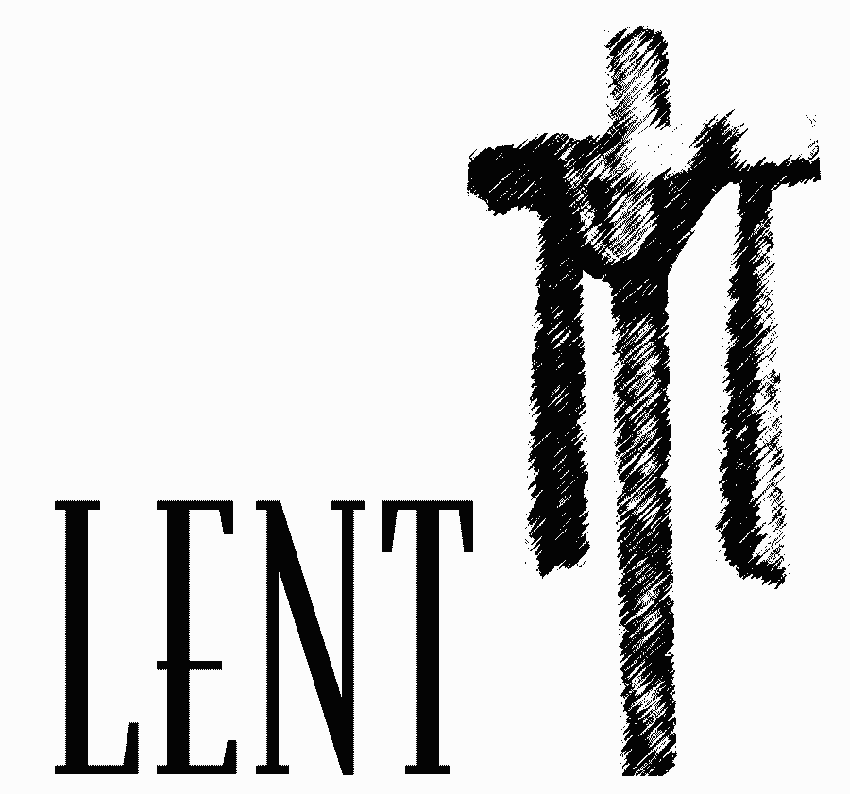|
|
“FIRST IMPRESSIONS”
THIRD SUNDAY OF LENT -C-
March 23, 2025
Exodus 3:
1-8a, 13-15; Psalm 103;
1 Corinthians 10: 1-6, 10-12; Luke 13: 1-9
by Jude Siciliano, OP |

Printer
Friendly |
Click Here for
a link to this Sunday for Year A.
Dear Preachers:
Thank you for your response to our video appeal
last week.
You can still make a donation and help keep this service free to those who need
it. Go to:
https://preacherexchange.com/donations.htm

In
today’s Exodus reading, one of my favorite biblical phrases appears: “Here I
am.” This is Moses’ response to God’s call. “Here I am” is also the response
given by other biblical figures when God calls their names. Jacob responds this
way to the angel in his dream (Gen 31:11). Samuel answers repeatedly in this
manner, initially thinking that Eli is calling him (1 Sam 3:4-6, 8). Other
examples include Abraham (Gen 22:1-2) and Isaiah (Isa 6:8).
Today, it is Moses who responds at the burning bush when God calls his name:
“Here I am.” This phrase expresses an openness to God’s call, even when the
person does not yet know what will be asked of them. Each of these call stories
marks a significant turning point in the lives of those who hear and respond,
shaping salvation history. A key feature of these stories is their pattern: it
is always God who calls first, and then the person responds.
God initiates the call to Moses simply by calling his name: “Moses, Moses.” To
this, Moses replies, “Here I am.” This is a classic call-response story. The
encounter between God and Moses takes place at the burning bush. In the Bible,
fire often symbolizes God’s presence (e.g., the pillar of fire in Exodus 13:21).
As Moses approaches the bush, he says, “I must go over to look at this
remarkable sight and see why the bush is not burned.” The burning bush is
symbolic: Israel will endure many sufferings but will not be consumed. God is
not deaf to the suffering of God’s people, but chooses a leader, Moses, and
empowers him to aid the distressed and enslaved Israelites.
Moses does not seem like a likely candidate to lead a great nation. At this
point, he is merely a shepherd, and the flock he tends does not even belong to
him. So far in the narrative, he has shown no obvious leadership qualities. This
reflects a common biblical theme: God often surprises us by choosing the least
likely people to aid the lowly, needy, or powerless – those who cannot free
themselves from oppression under the heavy hand of others.
However, the focus of the narrative is not so much on the Israelites’ need, but
on the Lord’s initiative. This is evident in the angel’s appearance to Moses in
the fire and in God speaking to him from the bush. (“The angel of the Lord” is
often the Bible’s reverent way of referring to God.) Perhaps there is a Lenten
theme here.
On the First Sunday of Lent, we heard how Jesus was led by the Spirit into the
desert for forty days (Lk 4:1-13). It was a desolate place, and Jesus was
hungry. Similarly, today’s passage tells us that Moses is “leading the flock
across the desert” when he arrives at Horeb, a name meaning “desolate place.” As
Moses approaches the burning bush, God calls out to him, and Moses responds,
“Here I am.” Then God tells him to remove his sandals.
This scene is a reminder of Lent: like Moses, we find ourselves in a desolate
place, but it is made holy by God’s presence. We might imagine that an encounter
with God should take place in a lush, serene setting—a place with flowing
streams, shade trees, grass, singing birds, and gentle wild animals. But
instead, Moses finds God in a barren, inhospitable place, just as we may
encounter God in the dry, challenging places of our own lives. Surprise!
God appears to Moses to announce that He is ready to act. Moses is not in the
temple when God speaks to him but among the Midianites, not the Israelites. Yet
God is about to liberate God’s people from slavery in Egypt.
The God of Moses’ ancestors speaks to him in the most unlikely of places. We
must not confine God just to sacred spaces like chapels, prayer rooms, or
tranquil meadows. God reaches out to Moses in the desert. What does this tell us
about our own Lenten journey? Lent is a season for us to recognize the desert
places in our lives and seek God’s revelation there.
Though deserts may seem barren, they are where we can hear God most clearly.
There God calls us to silence and prayer so that we can hear God’s still, small
voice speaking to our hearts. Lent leads us to Easter, where we receive the
grace that frees us from sin and promises us life.
Both today’s readings from Exodus and Luke take place in the desert. In the
Bible, the desert is depicted as a place of spiritual trial, purification, and
transformation. Lent invites us to go within – to the desert of our hearts – to
examine our spiritual lives and confront the distractions that pull us away from
God. Because of this spiritual testing and the transformation it brings, the
desert can be a holy place for us. It was in the desert that Moses encountered
the holiness of God, heard his name called, and received his mission to save his
people.
When Lent begins, some people groan, “Here we go again!” It is indeed a
challenging time—– a season of testing and purification. But it is also a time
when we can encounter God and have our spirits renewed by the joy of the
resurrection.
When Moses led the Israelites out of Egypt, they wandered for forty years before
entering the Promised Land. During their journey, they were tested and purified.
They learned to trust God, who fed them with manna and provided water from the
rock. God also nourished them spiritually with the commandments, guiding them in
right relationship with Him and with one another.
Lent is our opportunity to imitate those Israelites – to let go of our
attachments, vices, and sins, and to turn more fully to God, who alone offers us
true life. Our Lenten desert is not only about struggle and testing; it is also
a time of renewal, a season in which we can hear God’s word more clearly and
serve God more joyfully with renewed hearts and minds.
Click here for a link to this Sunday’s readings:
https://bible.usccb.org/bible/readings/032325-YearC.cfm
QUOTABLE
|
Before the fruit is ripened by the
sun,
Before the petals or the leaves uncoil,
Before the first fine silken root is spun,
A seed is dropped and buried in the soil.
Before we gain the grace that comes through loss,
Before we live by more than bread and breath,
Before we live in joy and empty cross,
We face with Christ the seed’s renewing death.
Thomas H. Troeger |
JUSTICE BULLETIN
BOARD
 The Lord secures
justice and the rights of all the oppressed. The Lord secures
justice and the rights of all the oppressed.
--Psalm 103: 6
What
have you given up for Lent? How’s that working for you? I pose these questions
because I sometimes wonder if we should think about a new way of fasting by
denying one’s own self-centeredness in order to help others.
Pope Francis writes in Evangelii Gaudium , “Sometimes we are tempted to be that
kind of Christian who keeps the Lord’s wounds at arm’s length. . .[Jesus] hopes
that we will stop looking for those personal or communal niches which shelter us
from the maelstrom of human misfortune and instead enter into the reality of
other people’s lives and know the power of tenderness. Whenever we do so, our
lives become wonderfully complicated and we experience intensely what it is to
be part of a people.” Doing so, creates a new world view.
In his Lenten message for 2016, Pope Francis speaks of mercy as a means for
transformation of our attitudes and lives, “God’s mercy transforms human hearts.
. .inspiring each of us to love our neighbor and to devote ourselves to what the
Church’s tradition calls the spiritual and corporal works mercy. . .in concrete
everyday actions. . .this will be a way to reawaken our conscience, too often
grown dull in the face of poverty, and to enter more deeply into the heart of
the Gospel where the poor have a special experience of God’s mercy.”
The Works of Mercy Stewardship weekends continue in the narthex this 3rd Sunday
of Lent by featuring ministries that shelter the homeless:
-
Door Fund/Ministry - Parishioners interview people in need of assistance
with past due rents and eviction notices and in other ways.
Coordinator--Barbara Quinby .
-
Habitat for Humanity – We are part of the Habitat Catholic Coalition and
build one affordable house in the fall each year. Coordinator--Walt Milowic
.
-
Refugee Resettlement -- Working with Our Lady of Our Lady of Lourdes Parish,
cathedral parishioners help USCRI-approved refugees that are here.
Liaison—Kimberly Stanko
-
Support Circles - 8-10 parishioners form a circle of assistance for one year
around a family seeking to emerge from homelessness.
Coordinator--Christopher Gorski .
-
Walking with Moms in Need – We help pregnant mothers or mothers in crisis
through accompaniment. Coordinator-Christine Dennis
This
Lent, open your arms and walk with the poor--make this a turning point in your
spiritual life and help secure justice and rights of the oppressed.
Barbara Molinari Quinby, MPS,
Director
Office of Human Life, Dignity, and Justice
Ministries
Holy Name of Jesus Cathedral,
Raleigh, NC
FAITH BOOK

Mini-reflections on the Sunday
scripture readings designed for persons on the run. “Faith Book” is also
brief enough to be posted in the Sunday parish bulletins people take home.
From today’s Gospel reading:
Jesus said, ...those eighteen people who were
killed
when the tower of Siloam fell on them –
do you think they were more guilty
than anyone else who lived in Jerusalem?
Reflection:
Are the
misfortunes people experience a punishment for their sins? Jesus responds, “By
no means!” Still, as we have experienced, sin may have dire or fragmentary
consequences on our lives, now, or in the not-too distant future.
So, we ask ourselves:
In
light of Jesus’ call to consider our lives and repent of our sins, we reflect on
sin’s consequences in our lives:
POSTCARDS TO
DEATH ROW INMATES
“One has to strongly affirm that condemnation to the death penalty is an
inhuman measure that humiliates personal dignity, in whatever form it is
carried out."
---Pope
Francis
Inmates
on death row are the most forgotten people in the prison system. Each week I am
posting in this space several inmates’ names and locations. I invite you to
write a postcard to one or more of them to let them know that: we have not
forgotten them; are praying for them and their families; or, whatever personal
encouragement you might like to give them. If the inmate responds, you might
consider becoming pen pals.
Please write to:
-
Christopher Goss #0150949 (On death row since 2/8/2005)
-
Lamar E. Tylor #0762634 (8/24/2005)
-
William Raines #0526698 (9/9/2005)
----Central
Prison P.O. 247 Phoenix, MD 21131
Please
note: Central Prison is in Raleigh, NC., but for security
purposes, mail to inmates is processed through a clearing house at the above
address in Maryland.
For
more information on the Catholic position on the death penalty go to the
Catholic Mobilizing Network:
http://catholicsmobilizing.org/resources/cacp/
On this
page you can sign “The National Catholic Pledge to End the Death Penalty.” Also,
check the interfaith page for People of Faith Against the Death Penalty:
http://www.pfadp.org/
DONATIONS
“First Impressions” is a service to preachers and those wishing to
prepare for Sunday worship. It is sponsored by the Dominican Friars. If you
would like “First Impressions” sent weekly to a friend, send a note
to fr. John Boll, OP at
jboll@opsouth.org.
If you
would like to support this ministry, please send tax deductible contributions to
fr. Jude Siciliano, O.P.
St. Albert
Priory
3150 Vince Hagan Drive
Irving, Texas 75062-4736
Make
checks payable to: Dominican Friars.
Or, go to our webpage to make an online donation:
https://www.PreacherExchange.com/donations.htm
RESOURCES
ORDERING
OUR CDs:
We have
compiled Four CDs for sale:
-
Individual CDs for each Liturgical Year, A, B or C.
-
One
combined CD for “Liturgical Years A, B and C.
If you
are a preacher, lead a Lectionary-based scripture group, or are a member of a
liturgical team, these CDs will be helpful in your preparation process.
Individual worshipers report they also use these reflections as they prepare for
Sunday liturgy.
You can
order the CDs by going to our webpage:
https://www.PreacherExchange.com
and clicking on the “First Impressions” CD
link on the left.
OTHER
PUBLICATIONS BY EMAIL:
1.
"HOMILÍAS DOMINICALES" ---These Spanish reflections on the Sunday and daily
scriptures are written by Dominican sisters and friars. If you or a friend would
like to receive these reflections drop a note to "Fr. John J. Boll,
O.P." <preacherexchange@att.net>
2.
"VOLUME 2" is an opportunity for you to hear from the readers of First
Impressions. To subscribe or Send your own reflections: Send them to "Fr. John
J. Boll, O.P." <preacherexchange@att.net > Your contributions to Volume 2 are
welcome.
OUR WEBSITE:
http://wwwPreacherExchange.com
Where you will find Preachers Exchange, which includes "First Impressions," "Homilias
Dominicales," and "Volume 2" as well as articles, book reviews, daily homilies
and other material pertinent to preaching and Scripture reflection.
FOR EMAIL
HELP OR TO UNSUBSCRIBE, SUBSCRIBE, OR CHANGE:
Email
"Fr. John J. Boll, O.P." <preacherexchange@att.net>
FIRST IMPRESSIONS Archive
(The latest are always listed first.)
• Lent-5th Sunday (A) •
• Lent-4th Sunday (A) •
• Lent-3rd Sunday (A) •
• Lent-3rd Sunday (C) •
• Lent-2nd Sunday •
• Lent-1st Sunday •
• Ash Wednesday •
• 8th SUNDAY •
|